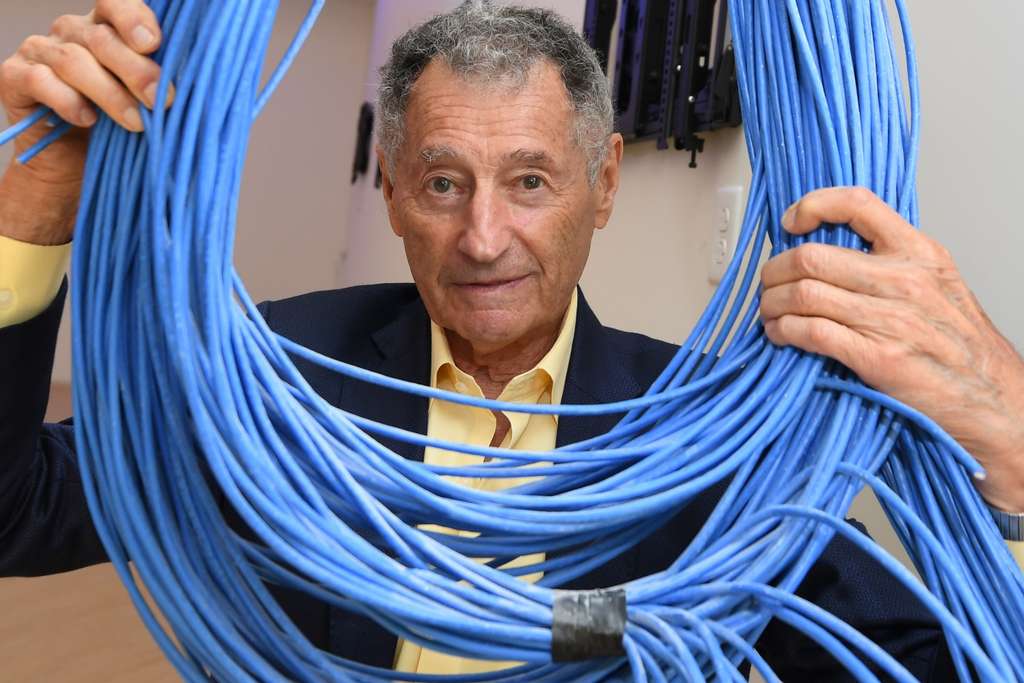Fifty years ago, Professor Leonard Kleinrock and his Ucla colleagues established a connection between two computers on the Arpanet network, the precursor network of the current Internet. ” I did not see the” social networking “aspect at all,” says Kleinrock, who turned 85 this year.
On October 29, 1969, Professor Leonard Kleinrock and his colleagues at the famed Ucla (University of California, Los Angeles) “talked” a computer with another machine, located in an area that would become Silicon Valley (south of San Francisco, United States). But the early enthusiasm was undermined by the unintended and unintended consequences of this innovation – the ancestor of the Internet.
Social networks: an unexpected aspect
” I had not seen the” social networking “aspect at all. I thought of getting people to communicate with computers, or computers between them, but not people between them, “says Leonard Kleinrock, who turned 85 in June.
To mark the 50th anniversary of the event, the professor is opening a new Internet-based lab to help combat the unexpected problems that have arisen with the adoption of the large-scale network. Some 4 billion people around the world now use the network, which it was believed would bring equality and knowledge to the majority. ” In a sense, it’s a very democratic invention,” he says.
But it also conceals a perfect formula for the dark side of humanity. There are so many things being shouted online that moderate voices are drowning and the extremes are amplified, spreading hatred, misinformation and abuse, “he says. ” As engineers, we did not think about malicious behavior. “The new Connection Lab will focus on topics such as machine learning, artificial intelligence, social networking, the Internet of Things and blockchain, a decentralized database. secure, which allows traceability deemed inviolable.

The blockchain, a measure of confidence
Leonard Kleinrock is particularly interested in the possibility of using the blockchain as a measure of confidence. For example, if you read a review of a restaurant, you might know if the author has published articles considered reliable so far. ” It would be like a network of reputations constantly updated, details the professor. The challenge is how to do it in an ethical and responsible way. Anonymity is a double-edged sword, of course. “
According to him, in the early days, the serenity of the network was thwarted only by solitary hackers (hackers). While now disruptive agents include nation-states, organized crime and powerful corporations that do ” big and bad things ” like making profits by violating privacy.